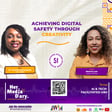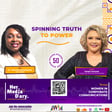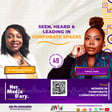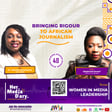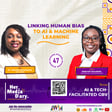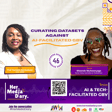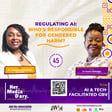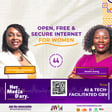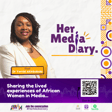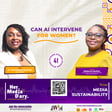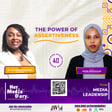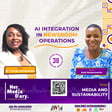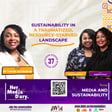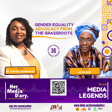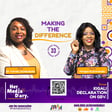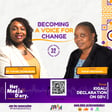
Her Media Diary Episode 39: “Shaping AI for the Future of Journalism” with Nolwazi Tusini
Nolwazi Tusini, an award-winning broadcast journalist, queer feminist, social justice activist and Program Director, Amplify South Africa. Nolwazi shares her experiences with loss, particularly the impact of losing her mother at a young age. This profound loss not only shaped her personal journey but also influenced her career path, pushing her towards journalism as a means to advocate for change.
Nolwazi talks about the challenges currently facing the media industry, particularly in light of technological advancements like AI. She emphasizes the need to keep a close eye on the policy making around AI and for Africa to be serious about the policy making and not allow AI companies to do with the continent what big tech had done.
Subscribe to Her Media Diary now on your favourite podcasting platform https://linktr.ee/hermediadiary
Learn about African Women in Media at https://africanwomeninmedia.com
List of Organisations/Resources to Support Women in Media
· International Women’s Media Foundation (IWMF)
· African Women in Media (AWiM)
· Public Media Women in Leadership
· International Journalists’ Network (IJNet)
· Media Career Development Network
